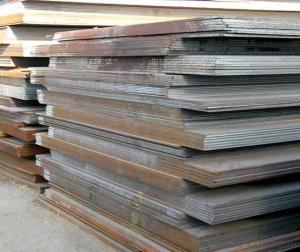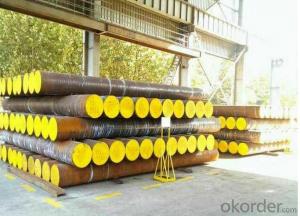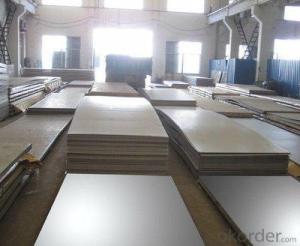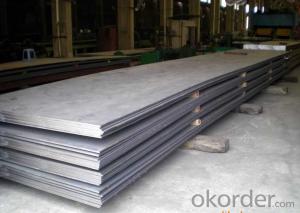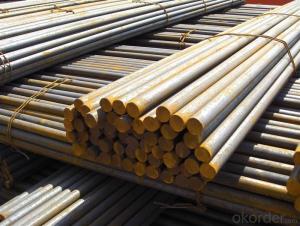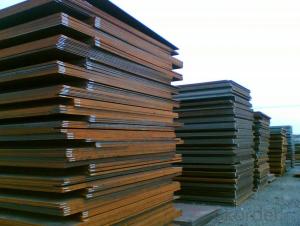Special Steel S235JR Carbon Steel Plate for LPG Cylinders Gas Cylinder
- Loading Port:
- CHINA MAIN
- Payment Terms:
- TT OR LC
- Min Order Qty:
- 30 m.t.
- Supply Capability:
- -
OKorder Service Pledge
OKorder Financial Service
You Might Also Like
Specification
Standard | DIN | ||||||||||
Grade | S235JR | ||||||||||
Width Thickness | 1500-2200mm 0.3-80mm | ||||||||||
Length | 6m,12m or as required. | ||||||||||
Tolerance | Within the allowable range or as required | ||||||||||
Condition of delivery | Hot rolled,Cold Rolled or as required. | ||||||||||
Chemical Composition(%) | |||||||||||
C | Si | Mn | P | S | Cr | ||||||
0.17-0.24 | 0.17-0.37 | 0.35-0.65 | ≤ 0.03 | ≤ 0.03 | -- | ||||||
Ni | Cu | ||||||||||
| -- | -- | ||||||||||
Mechanical Properties(In Quenching and Tempering) | |||||||||||
Tensile strength | Yield strength | Elongation | Reduction in Area | Impact | Hardness | ||||||
(σb/MPa) | (σs/MPa) | (δ5/%) | (ψ/%) | (J) | (HB) | ||||||
≥420 | ≥250 | ≥25 | ≥55 | -- | ≤156 | ||||||
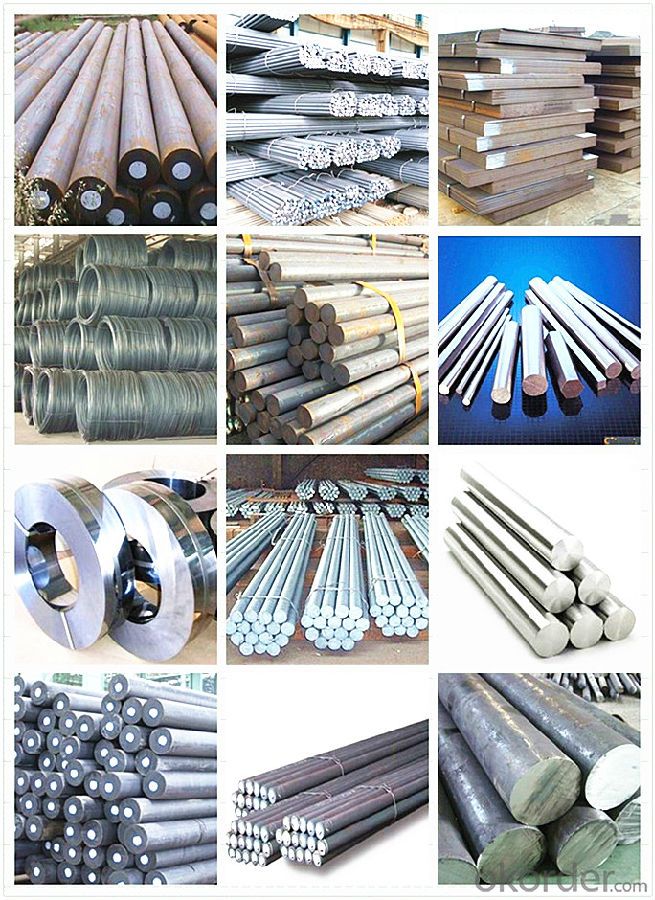
Workshop Show:
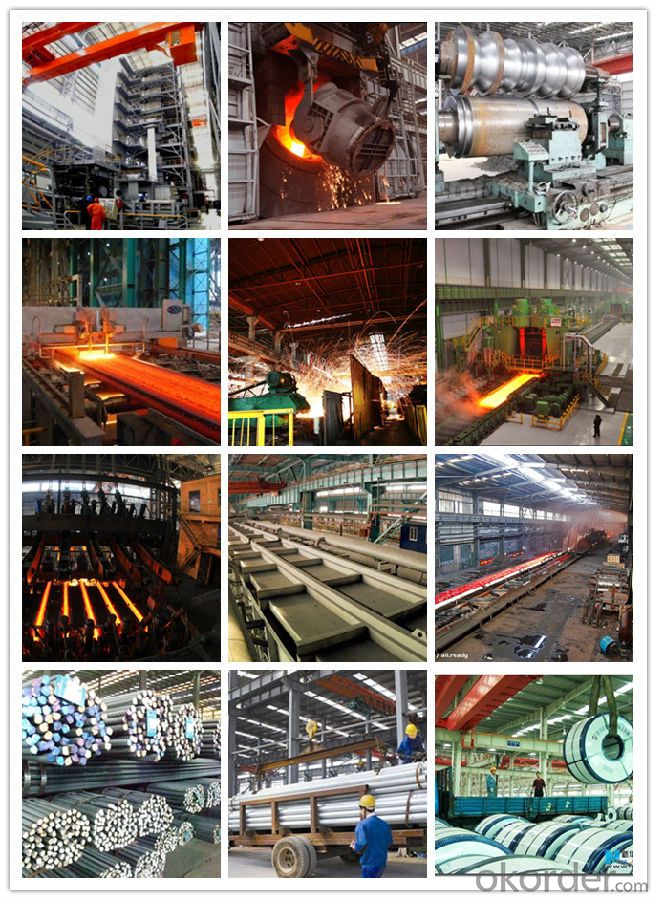
Shipping
1. FedEx/DHL/UPS/TNT for samples, Door-to-Door;
2. By Air or by Sea for batch goods, for FCL; Airport/ Port receiving;
3. Customers specifying freight forwarders or negotiable shipping methods!
4. Delivery Time: 3-7 days for samples; 5-25 days for batch goods.
5. Package Informations
1) EXPORT, In 20 feet (GW 25 ton) or 40 feet Container (GW 25 ton)
2)as customer's requirement
Why choose us?
(1) The leading exporter in China special steel industry.
(2) Large stocks for various sizes, fast delivery date.
(3) Good business relationship with China famous factories.
(4) More than 7 years steel exporting experience.
(5) Good after-sales service guarantee.
- Q: How does special steel contribute to the aerospace landing gear industry?
- Special steel plays a crucial role in the aerospace landing gear industry by providing the necessary strength, durability, and resistance to extreme conditions that are required for safe and efficient aircraft landings. One of the key requirements for landing gears is high tensile strength, as they must bear the weight of the aircraft during takeoff, landing, and taxiing. Special steel alloys, such as ultra-high strength steels, are specifically designed to resist deformation and withstand the enormous forces exerted on the landing gear. These steels have exceptional mechanical properties, allowing them to maintain their structural integrity under heavy loads. Moreover, special steel used in aerospace landing gears must exhibit excellent fatigue resistance to withstand the repeated stress cycles experienced during each landing. Fatigue failure of landing gears can have catastrophic consequences, so the use of high-quality steel ensures extended service life and reduces the risk of failure. In addition to strength and fatigue resistance, special steel alloys used in landing gears must possess exceptional corrosion resistance. Aircraft operate in various environments, including humid and salty conditions, which can accelerate corrosion. By using corrosion-resistant steels, the landing gear components can withstand these harsh conditions and maintain their performance and safety over time. Furthermore, the unique properties of special steel alloys allow for weight reduction in landing gear components. Aerospace industry continuously strives to reduce aircraft weight to improve fuel efficiency and performance. Special steel alloys, like high-strength low-alloy (HSLA) steels, offer the perfect balance between strength and weight, allowing for the design of lighter landing gear components without compromising safety or durability. In summary, special steel is crucial to the aerospace landing gear industry as it provides the necessary strength, fatigue resistance, corrosion resistance, and weight reduction capabilities required for safe and efficient aircraft landings. By using special steel alloys, the industry can ensure the reliability and longevity of landing gear components, contributing to the overall safety and performance of aircraft.
- Q: How does special steel contribute to the telecommunications equipment industry?
- Special steel plays a crucial role in the telecommunications equipment industry by providing high-quality materials that ensure the durability, functionality, and performance of various components. It is used in manufacturing transmission towers, antenna mounts, cables, connectors, and other critical infrastructure. The strength, corrosion resistance, and electrical conductivity of special steel enable the reliable transmission of signals, support the weight of equipment, and protect against external factors such as weather conditions. Overall, special steel contributes to the efficiency and reliability of telecommunications equipment, ensuring seamless connectivity and communication.
- Q: How does special steel contribute to the oil and gas industry?
- Special steel plays a crucial role in the oil and gas industry by offering enhanced strength, durability, and corrosion resistance needed for various applications. It is used in the construction of pipelines, drilling equipment, storage tanks, and offshore platforms, ensuring reliable and safe operations in harsh environments. Additionally, special steel's high heat resistance enables it to withstand extreme temperatures in refining processes, while its resistance to cracking and wear ensures the longevity of critical components. Overall, special steel contributes significantly to the oil and gas industry by providing the necessary materials for efficient and secure exploration, production, and transportation of oil and gas resources.
- Q: What are the main characteristics of alloy steel forgings?
- The main characteristics of alloy steel forgings include enhanced strength, durability, and resistance to wear and corrosion. They also offer excellent heat resistance and can withstand high temperatures. Additionally, alloy steel forgings possess good machinability and can be easily shaped and formed into various complex designs.
- Q: What are the different surface cleaning methods for special steel?
- There are several surface cleaning methods for special steel, including mechanical cleaning, chemical cleaning, and electrochemical cleaning. Mechanical cleaning involves using abrasive materials or tools to physically remove dirt, rust, or other contaminants from the steel's surface. Chemical cleaning involves using specialized cleaning agents or solvents to dissolve and remove any unwanted substances. Electrochemical cleaning utilizes an electric current and specific electrolytes to remove dirt and corrosion from the steel's surface. Each method has its advantages and is chosen based on the specific requirements and condition of the special steel.
- Q: What are the properties of creep-resistant steel?
- Creep-resistant steel possesses several key properties that make it suitable for high-temperature applications. These properties include high strength, excellent resistance to deformation under constant stress at elevated temperatures, good resistance to oxidation and corrosion, and the ability to retain its mechanical properties over extended periods of time.
- Q: What are the properties of wear-resistant alloy steel?
- The properties of wear-resistant alloy steel include high hardness, excellent toughness, resistance to abrasion and impact, good dimensional stability, and high corrosion resistance. These properties make it ideal for applications where wear and tear, such as sliding or impact, is a concern, ensuring durability and longevity of the material in harsh environments.
- Q: What are the quality control measures for special steel?
- Quality control measures for special steel involve several key steps and processes to ensure that the final product meets the required standards and specifications. These measures typically include: 1. Raw Material Inspection: Thoroughly checking the quality and composition of the raw materials used in the production of special steel, such as ensuring the correct chemical composition and metallurgical properties. 2. Process Control: Implementing strict controls and monitoring throughout the manufacturing process to ensure consistent quality, such as maintaining precise temperature control during heating and cooling processes, controlling the rolling or forging parameters, and ensuring proper heat treatment. 3. Testing and Sampling: Conducting various tests and sampling techniques to assess the quality of the special steel, including mechanical tests (such as tensile strength, hardness), non-destructive testing (like ultrasonic or magnetic particle inspection), and chemical analysis. 4. Dimensional and Surface Inspection: Verifying that the dimensions and surface finish of the special steel conform to the required specifications, such as measuring length, diameter, straightness, and checking for any defects or irregularities. 5. Final Inspection and Certification: Performing a final inspection to ensure that the special steel meets all quality standards and customer requirements. This may involve visual examination, additional testing, and issuing necessary certifications or quality assurance documents. By implementing these quality control measures, manufacturers can ensure the reliability, durability, and consistent performance of special steel, making it suitable for various critical applications in industries like automotive, aerospace, energy, and construction.
- Q: What are the different methods of analyzing the microstructure of special steel?
- The microstructure of special steel can be analyzed using various methods. These methods involve examining and characterizing the steel at a microscopic level to gain insights into its composition, grain structure, and other features. Some commonly used methods include: 1. Optical Microscopy: By using light microscopy, the microstructure of special steel can be observed. This method allows for the identification of different phases, grain boundaries, inclusions, and other features. It provides valuable information about the size, distribution, and morphology of constituents in the steel. 2. Scanning Electron Microscopy (SEM): SEM is a powerful technique that utilizes a high-energy electron beam to analyze the microstructure of special steel. It offers detailed information about the steel's surface topography, morphology, and elemental composition. SEM is particularly useful for studying precipitates, segregation, and other microstructural defects. 3. Transmission Electron Microscopy (TEM): TEM is an advanced technique that enables analysis of the microstructure at a higher resolution compared to optical and SEM methods. It involves the transmission of electrons through a thin sample, providing information about the crystal structure, dislocations, and other fine details of the microstructure. TEM is especially beneficial for studying nanostructures and interfaces in special steel. 4. X-ray Diffraction (XRD): XRD is a non-destructive method that utilizes X-rays to analyze the crystal structure and identify phases in special steel. It provides information about the crystallographic orientation, grain size, and phase composition of the steel. XRD is widely used for analyzing phase transformations and residual stress in special steel. 5. Electron Backscatter Diffraction (EBSD): EBSD combines SEM with crystallographic analysis to provide information about the crystal orientation, texture, and grain boundaries in special steel. It is useful for studying deformation mechanisms, recrystallization, and grain growth in the steel. 6. Energy Dispersive X-ray Spectroscopy (EDS): EDS is often used in conjunction with SEM or TEM to analyze the elemental composition of special steel. It provides information about the presence and distribution of different chemical elements in the microstructure, aiding in the identification of phases and characterization of inclusions. These methods, among others, offer valuable insights into the microstructure of special steel. They enable researchers and engineers to understand the steel's properties, performance, and potential applications.
- Q: What are the different surface coatings available for special steel?
- There are several different surface coatings available for special steel, including galvanizing, electroplating, powder coating, and thermal spraying. These coatings help to enhance the steel's corrosion resistance, durability, and aesthetic appearance.
Send your message to us
Special Steel S235JR Carbon Steel Plate for LPG Cylinders Gas Cylinder
- Loading Port:
- CHINA MAIN
- Payment Terms:
- TT OR LC
- Min Order Qty:
- 30 m.t.
- Supply Capability:
- -
OKorder Service Pledge
OKorder Financial Service
Similar products
Hot products
Hot Searches
Related keywords
